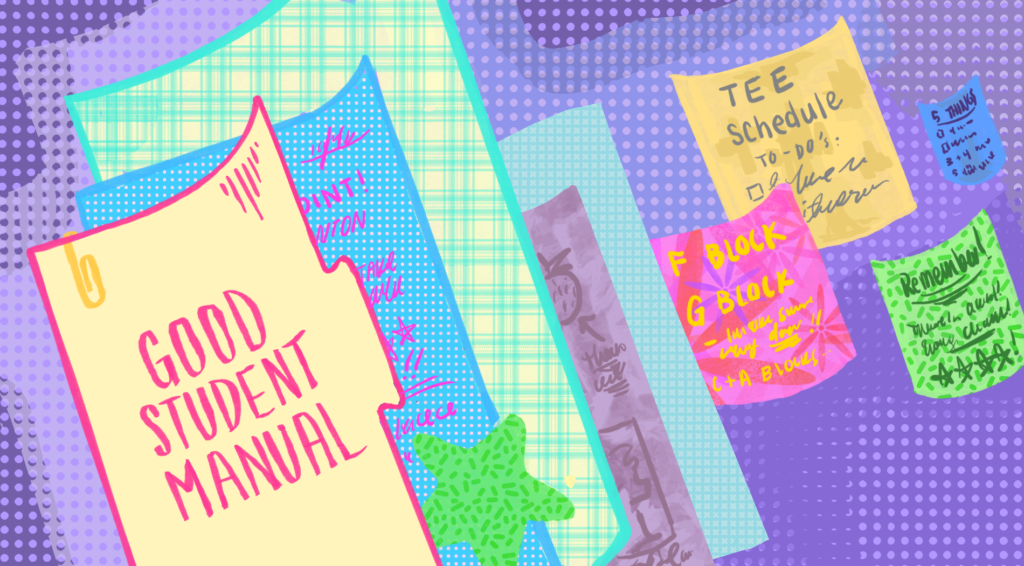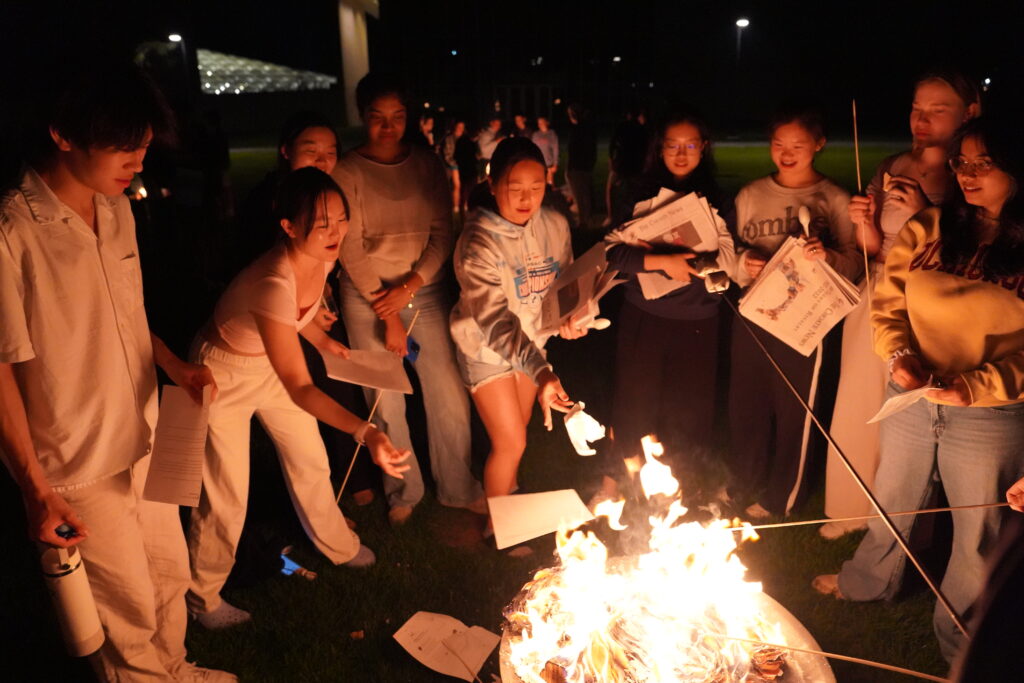
Graphic by Sesame Gaestaloe/The Choate News
The transition to remote learning has forced students and faculty alike to adapt and adjust. One of the biggest challenges so far has been the changes in the class curriculum and the newly-implemented Pass/D/Fail grading system.
Many students are grateful for the School’s decision to forgo letter grades this term. Sabahat Rahman ’21 was initially worried about the time difference affecting her ability to participate in class and effectively complete assignments. Rahman lives in Dharan, Saudi Arabia. “This new grading system has really helped decrease my stress a lot,” she said.
Other students have found that the new grading system has given them an opportunity for more equitable success, especially for those with patchy internet, nonoptimal learning environments, and insufficient resources, such as tutors or financial struggles, back home.
Nevertheless, the new grading system has come as a disappointment to some students. Jack Sun ’21 said, “The Pass/D/Fail system, while necessary, definitely has its downsides. For example, people who want to raise their GPA will not be able to do so, and people may be less incentivized to put in as much effort.”
The new system has also forced teachers to reevaluate their curricula and methods of assessment. Science teacher Mr. Ben Small explained, “I’ve been grading most assignments as complete/incomplete and giving students more written feedback on what I think they could do better. Then, those students who get an ‘incomplete’ have an opportunity to resubmit.”
As a physics teacher, Mr. Small also faces the challenge of reorganizing labs. “I’m trying to be creative, and we still are doing ‘labs,’” he said.
Before Choate officially closed its campus, Mr. Small took videos of himself performing labs in the Science Center, “ Now, I’m having my students watch the videos, record the data, do the data analysis, and write summaries and conclusions themselves,” he said. “Though it isn’t as good as physical labs, it allows them to get some good experience.”
Math teacher Mr. Sam Jonynas noted how the abruptness of this whole situation has caused some daunting challenges for his department. “Things like calculators and calculus textbooks often don’t make the Spring Break packing [list], believe it or not,” he explained. “Our Department Head [Dr. Matt Bardoe] has been really responsive to our input and I believe we’ve managed to move all of the necessary files and information online.”
Mr. Jonynas has found that the grading system has not really affected student effort. “I think what we have seen in practice is that our students, by and large, have kept up the same level of rigor and discipline as they have every other term. I’m really impressed and thankful for the maturity and flexibility with which I’ve seen our student body handle everything.”
HPRSS teacher Ms. Cindy Okrah said that the transition to online learning has given her an opportunity to experiment with different pieces of technology. “When we’re in regular class, I’m usually less inclined to try out different apps as we can get most things done in person,” she said, “Now that we’ve transitioned to virtual learning, however, I’ve really enjoyed trying out a variety of different apps that I believe really encourage creativity in my students.” By way of example, Ms. Okrah explained that she has begun to use Flipgrid, an app that allows students to create video responses to questions. “It’s worked out really well so far,” she said.
French and English teacher Dr. Katie Jewett has similarly incorporated more variety into her everyday classes in order to boost student enthusiasm. “Even more than in a face-to-face classroom, I think variety is important,” she noted, “With students sitting in the ‘same’ Zoom classroom for several hours a day, I imagine that, in their shoes, I’d want to shake things up.” Dr. Jewett has focused on incorporating French songs, Kahoots, scavenger hunts, and breakout rooms in lessons to keep students engaged.
As teachers cope with the sudden emptiness of a campus, Mr. Small is eager for students to Zoom in to class early, explaining, “Often the few minutes before class, when there are only a couple of kids there, are some of the most natural interactions and spontaneous conversations!”
Despite the positive aspects virtual learning has provided, teachers are still eager for everything to return to normal.
“Sitting in a chair all day staring at a computer screen is tough,” Mr. Small remarked, “I miss moving around the classroom and interacting with my classrooms full of students. I find that I am more tired at the end of the day, yet I feel like I haven’t done anything.”
Dr. Jewett agreed. “You can tell so much about how a student is doing by the way she drops her backpack and takes her seat in class,” she explained. “I miss the gestures, sighs, and snippets of conversation that in the past seemed so marginal, but I now realize are fundamental to tying us all together.”




